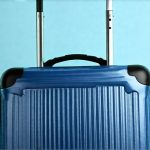Traveling is often associated with excitement, adventure, and new experiences. However, for individuals experiencing bladder discomfort – whether due to conditions like overactive bladder, interstitial cystitis, urinary tract infections (UTIs), or simply sensitivity – the prospect of travel can be fraught with anxiety and logistical challenges. The disruption to routine, changes in diet and hydration, unfamiliar restrooms, and prolonged periods of sitting or standing all contribute to potential flare-ups and discomfort. Many travelers find themselves limiting their destinations or avoiding travel altogether because of these concerns. This article aims to provide practical strategies and helpful information for managing bladder discomfort while traveling, allowing individuals to enjoy the freedom and joy that travel offers without unnecessary worry.
The key to successfully navigating travel with bladder issues lies in proactive planning and a comprehensive understanding of your individual triggers and needs. It’s not about eliminating travel; it’s about adapting your approach to minimize potential problems. This begins long before departure, with careful preparation related to medication, dietary considerations, packing essential supplies, and researching available facilities at your destination. Moreover, learning effective coping mechanisms for managing discomfort while on the move is crucial. Remember that every individual’s experience differs; what works for one person may not work for another, so tailoring these suggestions to your specific situation is paramount.
Pre-Travel Planning & Preparation
Planning isn’t merely about booking flights and accommodation; it extends to thoughtfully addressing potential bladder issues. Begin by scheduling a consultation with your healthcare provider well in advance of your trip. This allows time to discuss any concerns, obtain necessary refills of medications (with extra supply!), and receive personalized recommendations for managing your condition during travel. Don’t underestimate the importance of this step. A doctor can also advise on appropriate preventative measures or adjustments to existing treatment plans if needed. Beyond medical preparation, consider logistical aspects such as travel insurance that covers potential health-related issues and access to healthcare at your destination.
Dietary considerations play a significant role in bladder health. Before traveling, identify foods and beverages that commonly trigger your symptoms – these might include caffeine, alcohol, citrus fruits, spicy foods, or artificial sweeteners. While on the road, aim to maintain a consistent diet as much as possible, avoiding known triggers. Hydration is also critical, but balance is key. Dehydration can exacerbate bladder irritation, but excessive fluid intake can lead to more frequent urination. Find your sweet spot and stick to it.
Finally, create a detailed travel kit specifically addressing your bladder needs. This should include: – A supply of any prescribed medications – Over-the-counter pain relievers (if appropriate and as advised by your doctor) – Antibacterial wipes for hygiene – especially important when restroom cleanliness is questionable – Disposable seat covers for public restrooms – Change of underwear & clothing in case of accidents – Travel-sized hand sanitizer – A list of nearby hospitals or medical facilities at your destination. Packing these essentials provides peace of mind and empowers you to manage unexpected situations effectively.
Managing Discomfort During Travel
The journey itself often presents the greatest challenges. Prolonged sitting – common during flights, train rides, or long car trips – can put pressure on the bladder and exacerbate symptoms. Regular movement is essential. Get up and walk around whenever possible, even if it’s just for a few minutes every hour. Simple stretches performed in your seat can also help alleviate pressure. During air travel, request an aisle seat to facilitate easier access to restrooms. Consider using a small pillow or lumbar support to maintain good posture and reduce strain on the bladder area.
When restroom breaks are available, don’t hesitate to use them – even if you don’t feel an urgent need to go. This can help prevent overfilling of the bladder and minimize discomfort. However, avoid “just in case” trips, as frequent urination can sometimes become a self-fulfilling prophecy. Focus on planned stops during your journey rather than constantly worrying about finding a restroom. Remember that stress and anxiety can worsen bladder symptoms, so practice relaxation techniques such as deep breathing exercises or mindfulness to manage these feelings.
Hydration remains important even during travel, but adjust your intake based on the length of the trip and availability of restrooms. Avoid large amounts of fluid right before periods of immobility. If you’re prone to UTIs, consider drinking cranberry juice (unsweetened) as a preventative measure, although scientific evidence supporting this claim is mixed. Most importantly, listen to your body and respond to its signals. Don’t push yourself beyond your limits.
Addressing Specific Travel Scenarios
Different modes of travel pose unique challenges. Air travel often involves cramped conditions, dry air, and limited access to restrooms. In addition to the strategies mentioned above, consider wearing loose-fitting clothing to avoid pressure on the bladder. Stay well-hydrated before and during the flight, but limit fluid intake during takeoff and landing due to cabin pressure changes. Utilizing noise-cancelling headphones can help reduce anxiety and create a more relaxing environment.
Road trips, while offering greater flexibility, require careful planning regarding restroom stops. Map out potential rest areas or gas stations along your route beforehand, ensuring they offer clean and accessible facilities. Pack a portable potty if you’re concerned about finding suitable restrooms in remote areas. Encourage regular breaks for all passengers, not just those with bladder issues, to avoid fatigue and maintain overall well-being.
Cruises, though seemingly relaxing, can also present challenges due to changes in diet, activity levels, and potential exposure to new bacteria. Be mindful of your dietary choices, avoiding known triggers. Take advantage of the onboard fitness facilities to stay active. And be diligent about hygiene practices, such as washing your hands frequently, to minimize the risk of UTIs. If you experience any symptoms of a UTI while on a cruise, seek medical attention immediately – most ships have an infirmary with a doctor and nurse available.
Dealing With Flare-Ups Away From Home
Despite meticulous planning, flare-ups can still occur during travel. The key is to remain calm and assess the situation. If you experience sudden or severe pain, fever, difficulty urinating, or blood in your urine, seek medical attention immediately. Don’t attempt to self-treat serious symptoms. Utilize any pre-prepared information about local hospitals or clinics at your destination.
If the flare-up is mild to moderate and doesn’t require immediate medical intervention, focus on managing the symptoms. Take prescribed medications as directed. Apply a warm compress to the lower abdomen for pain relief. Practice relaxation techniques to reduce stress and anxiety. Adjust your diet and hydration accordingly – reducing potential triggers and staying adequately hydrated without overdoing it.
Communicate clearly with travel companions about your condition and needs. Don’t hesitate to ask for assistance or modifications to the itinerary if necessary. Remember that prioritizing your health is not selfish; it’s essential for enjoying your trip and preventing more serious complications. It’s also important to remember that a flare-up doesn’t necessarily mean the end of your travel plans – often, with appropriate management, you can still salvage the experience and create positive memories.
Resources & Further Information
While this article provides general guidance, it’s not a substitute for professional medical advice. If you have concerns about bladder health or are planning a trip while managing a specific condition, consult your healthcare provider. Several organizations offer valuable information and support:
- The National Association for Continence (NAFC): https://www.nafc.org/
- The Interstitial Cystitis Network (ICN): https://www.icnnetwork.org/
- The Urology Care Foundation: https://www.urologyhealth.org/
These resources can provide more in-depth information about bladder conditions, treatment options, and coping strategies. Remember that you are not alone, and there is help available to manage your condition and enjoy the freedom of travel.





















